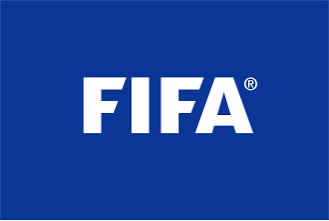
By Vivian Emoni
By many accounts, Nigeria, in two years of President Bola Tinubu’s administration, has witnessed significant industrial growth and trade facilitation.
It has also attracted billions in foreign direct investment.
The administration, through collaboration across sectors, has provided support for local businesses, enhanced industrial capacity, and integrated Nigeria into global markets.
Stakeholders, who appraised Tinubu’s two years in office, say the administration has reinvigorated the country’s trade relations and repositioned it in an approach that reflects a renewed commitment.
An economic expert, Dr Desmond Oluwadare, said there had been proactive engagements, tangible outcomes regarding trade partnerships, diaspora engagement, and global influence that had supported a sustained strategy and coordination.
He commended Dr Jumoke Oduwuole, Minister of Trade, Industry, and Investment, for championing digital inclusion and fostering tech innovation through strategic partnerships.
The expert said that improvements had been made in non-oil exports.
Nonetheless, he said Nigeria still lagged behind in international trade.
“To address this, the government must shift into revitalising and professionalising all agencies involved in the export value chain, including the Standard Organisation of Nigeria, Customs, and the Nigerian Ports Authority.
“These agencies must be given specific timelines to streamline export procedures,’’ he said.
Mr Williams Osaze, President of the Society for the Promotion of People’s Rights, an NGO, said that the ministry had delivered a mixed bag of results, with well-intentioned reforms driving fiscal gains, trade growth, and infrastructure advancements.
Osaze said that implementation challenges and negative impacts like inflation and forex volatility had strained businesses.
According to him, the administration inherited a very bad economy at inception in May 2023.
“It has surmounted the initial mountainous difficulties facing the nation, but there are still mountains to be scaled to consolidate reforms,’’ he said.
He said that the ministry had done great in the area of implementation of the Africa Continental Free Trade Area (AfCFTA), adding that the efforts would enhance strong partnerships between Nigeria and other African countries.
Osaze said that the AfCFTA was set to change Africa’s production and trade landscape.
He advised the government to improve infrastructure by enhancing transportation networks, such as roads, railways, and air travel, to facilitate trade within the continent.
The Secretary-General of AfCFTA, Mr Wamkele Mene, also highlighted some of the efforts made in the implementation of the AfCFTA.
“It was a very important step forward because Africa’s largest economy is open for business; that is what it demonstrated.
“The implementation of the AfCFTA will encourage investment and create more job opportunities for young people.”
He said that free trading under the AfCFTA began on Jan. 1, 2021, after several years of negotiations, while the trade agreement was signed in March 2018 and entered into force in May 2019.
“The AfCFTA is a step toward Africa’s aspiration for regional integration.
“It creates a single market for goods and services and aims at boosting intra-African trade by reducing tariffs and addressing non-tariff barriers like customs delays,’’ he said.
Mene said that the AfCFTA would also increase Nigeria’s Gross Domestic Product (GDP) and contribute to external reserves.
Dr David Osage, an economist and a retired director in the public service, said that African countries including Nigeria, were taking several steps to promote the AfCFTA.
Osage said that the AfCFTA would boost the manufacturing sector and increase the number of companies on the Nigerian Stock Exchange.
He added that other African countries would benefit if the AfCFTA was effectively implemented.
Osage commended the ministry for its tireless effort in implementing the initiative.
The economist also commended the ministry on its effort to collaborate with the United Nations Development Programme (UNDP) and Uganda Airlines for inaugurating the Nigeria-East/Southern Africa Air Cargo Corridor with a 50 percent to 75 percent discount in logistic costs, including regulatory charges.
He said that the ministry had demonstrated strategic leadership, adding that the new air cargo corridor would provide Nigerian exporters with access to three key African hubs, Uganda, Kenya, and South Africa.
Osage noted that the initiative marked the fulfillment of a key campaign promise by Tinubu to accelerate the diversification of Nigeria’s non-oil exports by leveraging the opportunities presented by the AfCFTA.
The economist emphasized the need for the ministry to intensify efforts at collaborating with relevant stakeholders, especially international experts in the trade and investment sector, to enhance and promote trade.
He also advised the ministry to work with the Nigeria Customs Service (NCS) to reduce delays and costs associated with trading across borders.
More so, Emmanuel Adujua, an expert in trade and investment, said that the 4th Joint Meeting of ECOWAS Ministers of Trade and Industry held recently with a strong call for economic diversification, industrial growth, and regional collaboration, was a great achievement.
Adujua urged the government to continue its effort at improving tariffs as such would support and help products to move freely across different payments.
He, however, said that there were delays in the implementation of some policies.
The expert urged the government to intensify efforts in tackling such challenges.
Meanwhile, Oduwole recently reaffirmed the ministry’s commitment to reducing the cost of transporting goods and services by air, land, and sea to boost production across the country.
She said that the efforts would ensure faster delivery of goods and services, reduce costs, and expand the country’s global trade reach.
“We are exploring direct cargo freight across Africa for our traders because Nigerians engage in significant trade; this will help bring them together.
“We aim to lower cargo freight costs; that is one of the key initiatives the ministry is undertaking to fulfill its mandate.”
The minister noted that the ministry was collaborating with Independent Power Producers (IPP) nationwide.
“This partnership with the private sector aims to enhance power supply, which will significantly boost the country’s economic growth.’’
She also confirmed ongoing efforts to improve tariffs, adding that the ministry was working with the Nigeria Customs Service and the Nigeria Immigration Service to streamline procedures, rules, and value chains for trade facilitation.
According to her, the ministry is also focused on making Nigeria an attractive investment destination, which requires a conducive environment and favourable tariffs.
“Our goal is to champion trade and industry, ensuring policies support business growth and economic expansion.”
She highlighted collaborations with over 50 federal agencies to improve business processes and transparency.
“We continuously seek new pathways to prevent unintended consequences in our policies and ensure they support businesses and traders.”
She emphasised that Nigerian businesses were already expanding across Africa, moving ahead of government-led initiatives.
“To achieve its objectives, the ministry has partnered with key ministries, strengthening collaboration to drive investment, trade, and industry.
“We are working closely with the Ministry of Agriculture and Food Security, the Ministry of Arts, Culture, Tourism and Creative Economy, and the Ministry of Communication, Innovation and Digital Economy.
“Through these partnerships, we aim to create an environment where investment, industry, and trade can thrive within Nigeria’s economy.’’
Oduwuole said that the ministry had already initiated discussion with the International Finance Corporation (IFC) on establishing Nigeria’s carbon markets for utilisation and storage.
She said that the Tinubu administration had provided a 200 billion dollar intervention fund that was meant for business growth in the country.
“50 billion dollars of that fund was meant for manual businesses as grants and then 75 billion dollars for the Micro, Small and Medium Enterprises (MSMEs) and another 75 billion dollars, meant for manufacturers,
“I think that provision and intervention are still being managed by the Bank of Industry.
“The ministry is currently looking at pursuing how to get our manufacturers to benefit from an appropriate price of gas.
“When this happens, a lot of the matters about the high cost of commodities are going to be brought down,’’ she said.
Oduwole said that seven of the ministry’s eight-point agenda were specifically to accelerate economic diversification.
In all, stakeholders hold the view that, in two years, the Tinubu-led administration has creditably acquitted itself in terms of bolstering industrial growth, expanding trade, and attracting more foreign direct investment.
.Emoni writes for the News Agency of Nigeria









